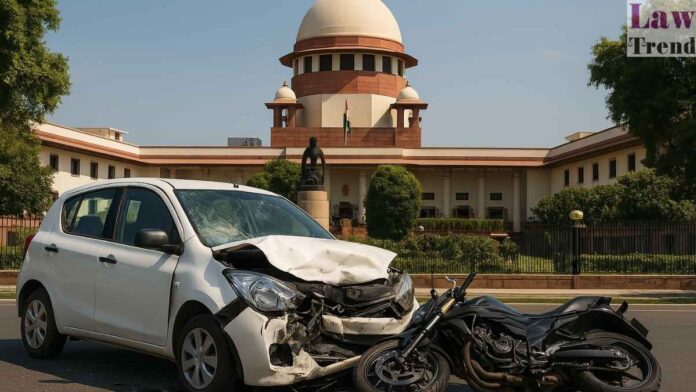Supreme Court rules on dependency and legal representation in motor accident claims involving married daughters and aged parents The Supreme Court of India has clarified that a married daughter of a deceased woman cannot claim compensation for loss of dependency under the Motor Vehicles Act, 1988, unless she proves actual financial dependence on the deceased.
To Read More Please Subscribe to VIP Membership for Unlimited Access to All the Articles, Download Available Copies of Judgments/Order, Acess to Central/State Bare Acts, Advertisement Free Content, Access to More than 4000 Legal Drafts( Readymade Editable Formats of Suits, Petitions, Writs, Legal Notices, Divorce Petitions, 138 Notices, Bail Applications etc.) in Hindi and English.




